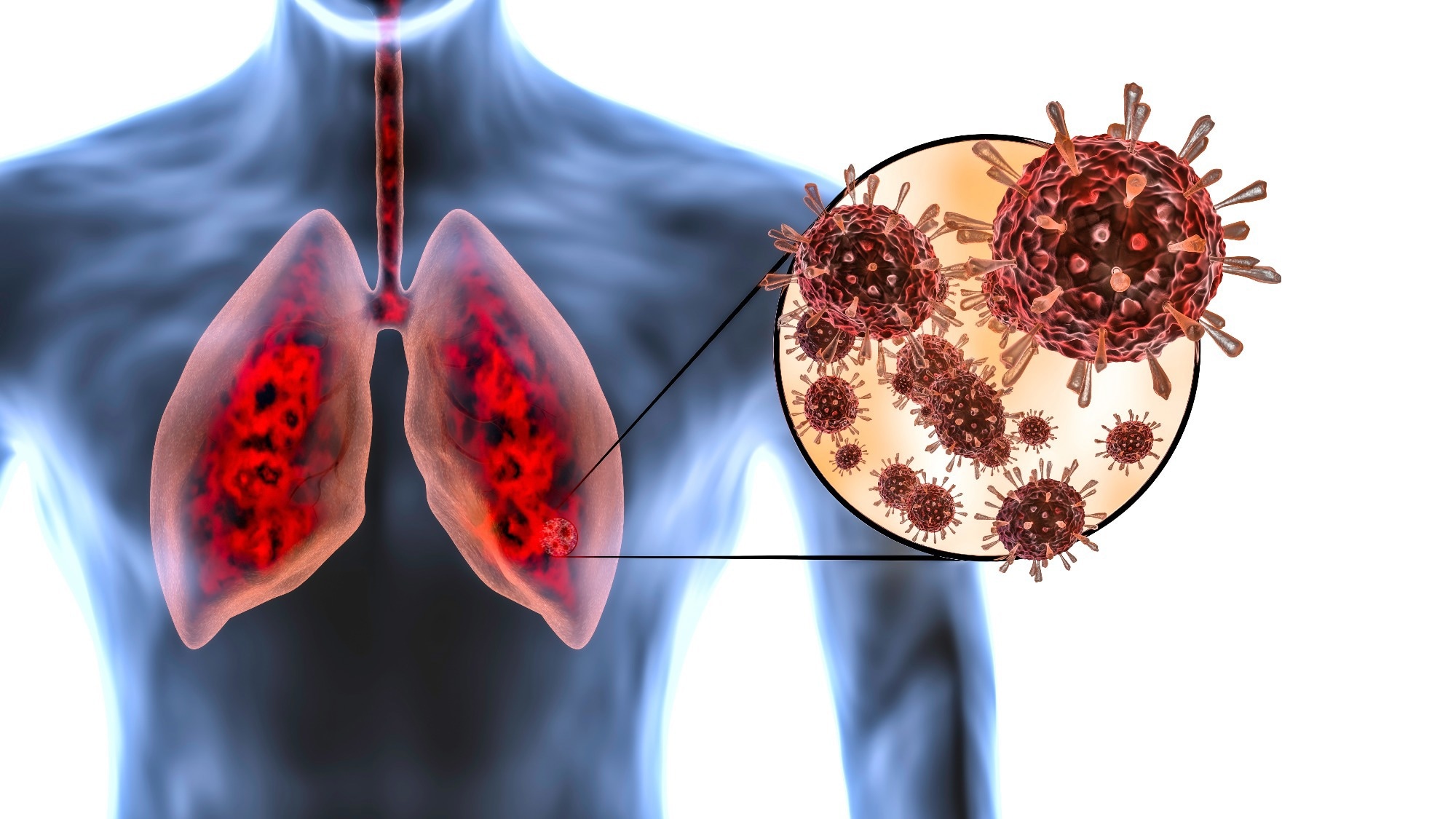In a recent study published in the journal Science Advances, a group of researchers investigated the influence of rs2204985 polymorphism within the T-cell receptor alpha and T-cell receptor delta (TCRA-TCRD) locus on the immune response and severity of coronavirus disease 2019 (COVID-19) in patients with severe pneumonia.
 Study: Genetically determined thymic function affects strength and duration of immune response in COVID patients with pneumonia. Image Credit: MarcinWojc / Shutterstock
Study: Genetically determined thymic function affects strength and duration of immune response in COVID patients with pneumonia. Image Credit: MarcinWojc / Shutterstock
Background
Severe Acute Respiratory Syndrome Coronavirus 2 (SARS-CoV-2) has infected an estimated 770 million individuals globally, causing severe illnesses in a minority and approximately 7 million deaths. The host genetic background significantly influences susceptibility and outcomes of various infectious diseases, including COVID-19. Recent findings highlighted a relationship between severe COVID-19 and genetic variants influencing host defense and inflammation. Further research is essential to understand more precisely the impact of rs2204985 polymorphism and other genetic markers on COVID-19 severity and immune response, particularly in severe cases, which can lead to the identification of high-risk individuals across varying age groups and health conditions, enhancing strategies for prevention and treatment.
About the study
The present study unfolded within the intensive care unit (ICU) of Clinique Ambroise Paré in Neuilly, France, from March 2020 to February 2022, encompassing 40 adult COVID-19 patients and 41 control patients with non-COVID-19 related diseases. A subgroup consented to a second examination six months post-recovery. The control group, admitted during the same period, consisted of individuals hospitalized for varied medical reasons.
Upon admission, 37 COVID-positive and all COVID-negative patients underwent thoracic computed tomography (CT) scans to evaluate pulmonary status. Discrepancies in scan interpretations by two radiologists led to a collaborative review and consolidated classification. Peripheral blood mononuclear cells (PBMCs) were isolated from blood samples and frozen until further use. The T-cell receptor excision circles (TRECs) were quantified through a nuanced polymerase chain reaction (qPCR) methodology.
The research also entailed single nucleotide polymorphism (SNP) sequencing, addressing the challenges posed by repeated sequences in the region encompassing the rs2204985 SNP. Flow cytometry phenotyping was executed to examine cell viability and profile. T-cell responses specific to SARS-CoV-2 were quantified using a dedicated analysis kit, and neutralizing antibodies were assessed based on their capability to impede the binding of the SARS-CoV-2 spike protein to its receptor.
Statistical analyses, utilizing tests like analysis of variance (ANOVA) and Mann-Whitney across diverse software tools, were employed to explore the complex interactions between SARS-CoV-2 and the human body. These comprehensive methodologies yielded significant insights into the virus's nature, enhancing understanding and facilitating the development of precisely targeted therapeutic interventions.
Study results
The present study included forty consecutive patients in the same ICU for severe COVID-19 with pulmonary involvement, all consenting to TCRA-TCRD locus deoxyribonucleic acid (DNA) sequencing. The Guanine-Guanine (GG) genotype at the rs2204985 locus was notably associated with less severe lung involvement compared to its Adenine-adenine (AA) and GA counterparts. Only 54.5% of GG patients showed severe lung impact in CT scans, compared to 100% and 83.3% in AA and GA patients, respectively. Age and sex were comparable among the groups, with no notable variances in COVID-19 severity due to these or other common comorbidities.
However, the percentage of patients with comorbidities was higher in the AA + GA group than in the GG group, reflecting a potential relationship between these genetic markers and disease resilience. A multivariate analysis was performed considering various health factors, where the GG genotype emerged as an independent factor affecting lung CT scan scores, suggesting protection against severe lung involvement for patients with the GG genotype.
The rs2204985 genotype's association was investigated with levels of thymopoiesis in patients, and the data indicated that GG patients have a higher median signal-joint TREC/DJbeta TREC (sj/βTREC) ratio compared to GA and AA individuals, signaling an efficient adaptive immune response against SARS-CoV-2 during acute infection. This reflected a more substantial thymic output correlated with a higher number of circulating T cells, crucial in the immune response against the virus.
Further investigations revealed that the polymorphism might also be associated with a stimulating impact of COVID-19 infection on thymic function. An examination conducted on a subgroup of 25 fully recovered patients revealed no significant difference between the fold increase in thymic production during severe SARS-CoV-2 infection between GG and the AA + GA groups. However, GG genotype patients displayed elevated counts of several T cell subsets, indicating a persistent enhanced immune response six months after recovery from acute disease.
To estimate the GG genotype's impact on mounting a more effectual and sustained immune response against SARS-CoV-2, virus-specific T-cell responses were compared in GG and AA + GA patients. Results revealed that GG patients had an overrepresentation of polyfunctional T cells, which were more effective during the acute phase of the disease, and the advantage persisted post-recovery. The study also found that the SARS-CoV-2 neutralizing capacity of patient blood immunoglobulins during acute COVID-19 and after recovery was higher in GG patients, albeit the difference was not statistically significant
Finally, a comparison of blood cytokine levels revealed that fifteen of thirty-one tested cytokines were significantly overexpressed in COVID-19 patients compared to controls, with ten of them being more expressed in GG patients. This suggested a potential enhancement in immune response in GG patients during SARS-CoV-2 infection.